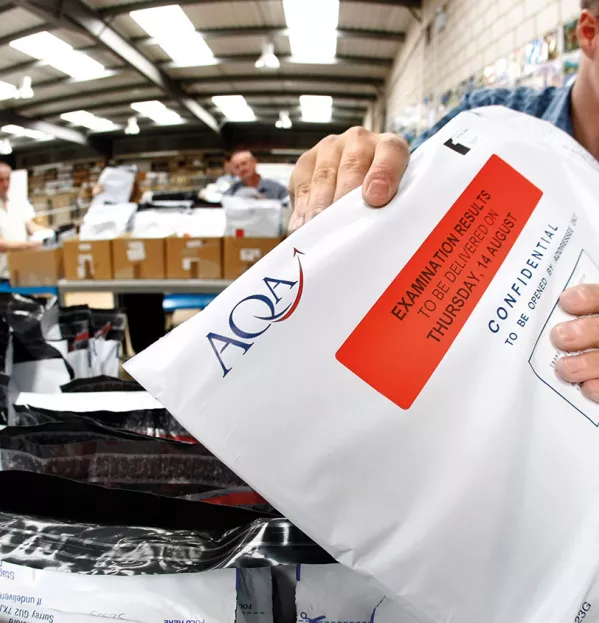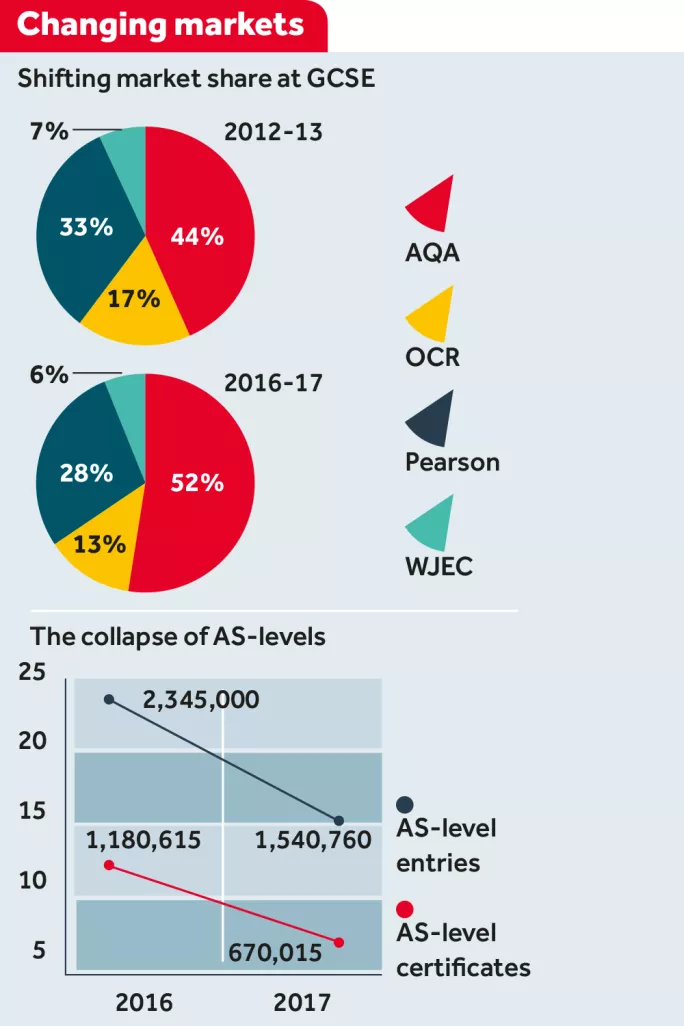Pressure on exam boards hit by a triple whammy

The shake-up of GCSEs and A levels has had a massive impact on pupils, teachers and parents alike. But the exam boards have also had to dramatically overhaul what they do in a relatively short space of time - and the changes have hit their bottom line.
In an interview with Tes earlier this year, Simon Lebus, the outgoing chief executive of Cambridge Assessment, acknowledged that “huge amounts of investment are required in terms of new qualifications as and when they’re required”.
Lebus pointed out that the country’s biggest exam board, AQA, “recorded a quite a large loss last year” and that OCR - the board run by Cambridge Assessment - had “a few loss-making years”. “It’s financially quite a bracing environment,” he said.
Now, one exam industry insider has opened up to Tes about just how difficult the reforms have been for awarding bodies, describing in detail the operational and financial implications for the organisations.
The insider - who asked not to be named - says that people have got the wrong idea about the profits made by the assessment industry. “People think that exam boards make lots of money, but it’s actually really tight, particularly in the GCSEs and A-level world,” the source says.
Industry rocked by reforms
The first reason why the industry has taken a hit from the reforms, the source says, is because of the up-front costs of adapting to the new system.
“We literally spent millions redeveloping A level and GCSE, just getting the specifications done, the curriculum. You’ve then got to market it all and promote it and have all the relevant resources alongside it.”
Updating technology systems - even for seemingly trivial things such as changing GCSE grades from letters to numbers - also comes with a cost. “There’s an enormous IT expense,” says the source.
The same applies to retraining staff. “You’re having to retrain your lead examiners with a new syllabus, you’re having to retrain your examiners themselves, you’re having to bring in new examiners because there are new units.
“There’s a substantial resource burden before there’s ever any income. This is two or three years in terms of development before anyone has even started sitting the things.
“It’s costs, costs, costs.”

If the price of change is one of the pincers in which boards are caught, the other is loss of income. Modular exams and retakes have been scrapped, reducing the boards’ revenue. “The loss of retakes was a substantial hit,” the source says.
The decision to decouple AS and A levels has also taken its toll. AS-level entries plummeted from around 2.3 million in June 2016 to 1.5 million last June.
Certificates, meanwhile, fell from 1.1 million in June 2016 to just over 670,000 last year.
And these losses potentially have implications for schools faced with a restricted choice of exam boards for certain courses. “The combination of [loss of retakes and AS levels] financially is enormous on the exam boards,” the source says.
“That’s why in a number of subjects the boards started dropping those subjects, because the numbers just weren’t big enough to sustain the qualification.”
There has, indeed, been a trend for exam boards to drop certain subjects during the implementation of the reforms. OCR withdrew from offering GCSEs in French, German and Spanish in 2016.
This trend could threaten the ability of schools to offer certain subjects altogether. When AQA announced in 2016 that it was dropping its history of art A level, the future of the subject looked in doubt until Pearson stepped forward to offer the qualification.
The third reason why the reforms have increased pressure on the exam boards, the source says, is because moving to a new assessment regime creates a “break in the market”. As schools reassess which qualifications they should be enrolling their pupils on, there is intense competition among the boards to sign them up.
So where will this tougher financial environment lead? Could we even see a major exam board exit the market?
The source thinks it’s too early to draw that conclusion, but their advice is to watch the market share of the big boards to see who’s up and who’s down. “When there are changes like this, you do get shifts in market share, subject by subject,” they say.
“So if one board has started to pull in more, that will put the others under financial strain. It’s not a big money maker, the general qualifications, until you get a certain volume.”
According to the latest figures from Ofqual (see table, left), in recent years the GCSE market share has shifted towards AQA and away from its rivals. At A level, AQA and Pearson have both slightly increased their market share, while OCR and WJEC have seen theirs decline slightly.
Commenting on the government’s exam reforms, James Lloyd, AQA’s head of policy, says: “The changes have been a big challenge for the whole sector - but it feels like everyone has really stepped up to the plate and pulled together to make this work.”
Sharon Hague, senior vice-president for UK schools at Pearson, adds: “Steady progress has been made so far in the first phase of the reforms. In 2017, we successfully saw approximately 500,000 pupils gain Pearson Edexcel GCSE qualifications in maths and English. We are working hard and are firmly on track to deliver the next phase of subjects this year.”
And a spokesman for OCR comments: “We’ve developed over 100 new GCSEs and A levels as a result of exam reform and our priority is to provide the support teachers and their students need.”
He adds: “Schools have done an amazing job in rising to the challenge of the new GCSEs and A levels.”
You need a Tes subscription to read this article
Subscribe now to read this article and get other subscriber-only content:
- Unlimited access to all Tes magazine content
- Exclusive subscriber-only stories
- Award-winning email newsletters
Already a subscriber? Log in
You need a subscription to read this article
Subscribe now to read this article and get other subscriber-only content, including:
- Unlimited access to all Tes magazine content
- Exclusive subscriber-only stories
- Award-winning email newsletters